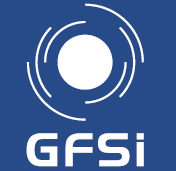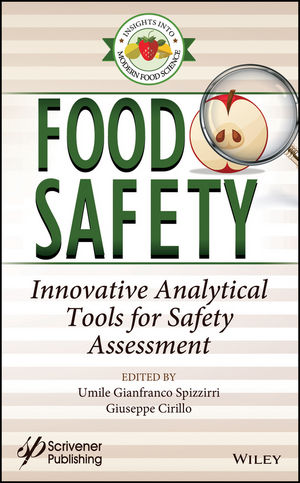Artisan Dairy Producers’ Food Safety Initiative

When the Food Safety Modernization Act (FSMA) was signed into law 8 years ago, both regulators and manufacturers knew putting it into practice would take time and a whole lot of effort. Larger companies were asked to lead the way and reach compliance back in 2016.
As they navigated FSMA regulations, the bigger dairy processors began to recognize the challenge that new rules might pose for artisans who lack the support of dedicated food safety staff (see “Challenges Encountered by Artisan Dairy Producers”). They also recognized that food safety issues among smaller producers could affect the reputation of the entire industry.
To address this potential pitfall, a group of processors directed the Wisconsin Cheese Makers Association (WCMA) to find a way to help, and—together with the Center for Dairy Research (CDR)—earned a grant from the U.S. Department of Agriculture–National Institute of Food and Agriculture to provide FSMA training via a program dubbed the Artisan Dairy Producer Food Safety Initiative. For this program, educators were needed to work shoulder to shoulder with artisan dairy plants.
That’s where we came in.
With nearly 90 years of combined dairy industry experience and several food safety certifications on our résumés, we were asked by WCMA and CDR to serve as the program’s food safety educators. Our goals were clear: help artisans meet their FSMA compliance deadline of September 2018 and improve food safety practices across the industry. We developed a number of tools to help this growing population of dairy producers.[1]
Program Outreach
Over the past 2 years, we’ve worked with more than 80 dairy processors in Iowa, Minnesota, and Wisconsin, providing FSMA workshops, on-call assistance, and dozens of template procedures and documentation forms, which are available now on WisCheeseMakers.org. Some of the most common questions we get are the following:
• In my plant, how can I provide improved barrier control between zones for raw, in-process, and finished product?
• What is the difference between a Hazard Analysis and Critical Control Points (HACCP) food safety plan and a FSMA Preventive Controls food safety plan?
• If I have an HACCP plan, is that sufficient for FSMA?
• What resources are available to assist with developing and implementing a cleaning and sanitation plan? (I currently purchase cleaners from retail farm supply stores.)
• How do I conduct a mock recall?
• Should I test my finished product? If so, for what microorganisms?
We’ve also provided on-site consultations at more than 70 manufacturing plants. Some of those plants have 50 employees. Some have just a few or one employee. Some are making many varieties of cheese for sale around the country, whereas others are selling only a couple of kinds at a farmers market. Some are making ice cream and/or bottling fluid milk products. Some have generations of processing experience, while others are just getting started.
However operations may vary, one attribute is universally shared: Dairy processors grasp the gravity of food safety in our industry. Despite competing demands on their time—and their preference to be working at the vat—the artisans we partnered with were committed to the process and paperwork needed to meet FSMA compliance. They’ve pored over paperwork, established and implemented new protocols, engaged in HACCP and Preventive Control trainings, and—in some cases—even hired additional staff to meet requirements. Their commitment to providing safe, high-quality, delicious products to consumers cannot be questioned.
Challenges of Scale and Resources
Yet, challenges to food safety at the artisan level remain, and those, too, seem universally shared. Most artisans have limited technical resources in-house for food safety checks. You won’t find a lab tech or a quality assurance manager in a two-person operation. As a result, some elements of a complete food safety program, such as environmental monitoring, may be restricted.
Artisans’ buying power is limited, as their volumes are smaller. It can be difficult for these makers to find suppliers that will sell a small quantity of sanitizers, like floor powders or granules, or enter into a pest control contract for a facility that’s just 5,000 square feet. Additionally, small artisan facilities may not receive the service of a supplier that larger dairy plants receive.
We also find that many artisans are purchasing ingredients for their cheeses or other dairy products off the shelf at big-box stores, because they cannot procure them at desired quantities via an industry supplier. That creates some risk, as the consumer retailers of the world will not provide the same level of assurance on content that FSMA requires for a supplier of goods and services to food plants. These challenges could be considered business opportunities for industry suppliers. We can confirm the demand for goods and services is there; a supplier need only find a way to deliver smaller quantities and service in a way that’s still profitable.
Moving Forward on Food Safety
An output from our work identified a need to work specifically with small and very small operators of raw-milk cheese production. Through our visits, we identified a number of best practices and formulated the Food Safety Systems Guide to Raw Milk Cheese Production that provides suggestions for the cheesemaker to identify and mitigate potential food safety risks posed by pathogens.[1] This guide offers three tools: a flowchart showing key food safety steps in the manufacture of raw-milk cheese, the top 10 action steps intended to provide a quick and handy overview of food safety management to manufacture raw-milk cheese with suggested risk-mitigation steps (note: cheesemakers must implement a range of strict controls to mitigate food safety risk), and a top 10 action-steps narrative that provides specific details for those steps. The top 10 steps are included here:
1. Develop a supplier control program for raw milk and ingredients.
2. Identify hurdles that use a kill step via process control and/or a recipe to control pathogenic contamination.
3. Set a target to monitor wet acid development during the make.
4. Create active pest and insect control programs.
5. Implement hygienic zoning and Good Manufacturing Practices to mitigate cross-contamination.
6. Verify documented cleaning procedures with a reputable sanitarian.
7. Conduct environmental monitoring and product testing to verify effectiveness of sanitation and barrier control programs.
8. Ensure a 60-day curing time at a minimum 35 °F prior to distribution.
9. Maintain a brine maintenance program (brined cheeses).
10. Identify opportunities for continuing education in food safety management.
In addition, as a second output, we are currently working to outline a cheese brine management plan for small and very small operators. This plan is intended to provide cost- effective intervention steps to mitigate potential food safety risks that pathogens pose to the cheese brine.
We also believe there’s an opportunity here for the industry to continue to strengthen itself by pooling food safety knowledge. The entire dairy industry collaborates on food safety through the Innovation Center for U.S. Dairy and the Dairy Food Safety Alliance, which was recently launched by WCMA, CDR, and the Dairy Farmers of Wisconsin, to share regulatory updates and insights from the brightest minds in government, research, and business. Joining is free (contact Events Manager Kirsten Strohmenger at kstrohmenger@wischeesemakers.org) and open to dairy processors of all sizes.
The truth is, FSMA compliance work is only just beginning. Our collective understanding of food safety continues to evolve and, as a result, regulations will evolve, too. Improving food safety in dairy processing facilities should be a continuous goal, and one we work hard to reach every day.
Jim Mueller and Larry Bell are members of the Artisan Dairy Producer Food Safety Initiative.
Reference
1. www.usdairy.com/artisan.
Looking for a reprint of this article?
From high-res PDFs to custom plaques, order your copy today!








